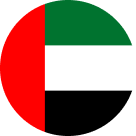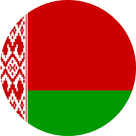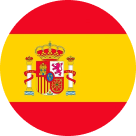5 archaic words in Bulgarian
The modern generation is rarely interested in archaic, complex texts. For this reason, many works of Bulgarian classical literature remain unread. Words that were used in antiquity become alien and lose their philosophical meaning.
We suggest you get acquainted with some examples of archaic Bulgarian words, which nowadays can be found only in the exposition of the museum.
Soba. In rural Bulgarians the word means a pack or a room. Such a room was located in a dwelling house. In a soba there was a hearth. In the room they rested, slept and received guests.
Palamarca. The word is also common among the villagers. Palamarka was a glove for the last three fingers. The palamarcka was made of wood. Such a device protected the fingers from being cut with a sickle while harvesting crops into sheaves.
Sukai, socai. This ancient term was used to describe a woman’s cape. Initially sukai was used in wedding dresses. After the capture of Bulgaria by Turkey, sukai was worn by married women in everyday dress.
Noshvi, nchva. This word means a container for kneading dough. Such utensils were traditionally made of wood (mainly ash). Noshva resembled a trough and was considered a symbol of hearth and home.
Yuz. The word is of Turkish origin. In ancient times yuz was considered a measure. Youz measured a volume of liquid (alcoholic drinks). One «yuz» is equal to 180 grams. From the word also came the name of bottles or «shot glasses» — «yuzcha».
The modern generation is rarely interested in archaic, complex texts. For this reason, many works of Bulgarian classical literature remain unread. Words that were used in antiquity become alien, lose their philosophical meaning.
We suggest you get acquainted with some examples of archaic Bulgarian words, which nowadays can be found only in the exposition of the museum.
Soba. In rural Bulgarians the word means a pack or a room. Such a room was located in a dwelling house. In a soba there was a hearth. In the room they rested, slept and received guests.
Palamarca. The word is also common among the villagers. Palamarka was a glove for the last three fingers. The palamarcka was made of wood. Such a device protected the fingers from being cut with a sickle while harvesting crops into sheaves.
Sukai, socai. This ancient term was used to describe a woman’s cape. Initially sukai was used in wedding dresses. After the capture of Bulgaria by Turkey, sukai was worn by married women in everyday dress.
Noshvi, nchva. This word means a container for kneading dough. Such utensils were traditionally made of wood (mainly ash). Noshva resembled a trough and was considered a symbol of hearth and home.
Yuz. The word is of Turkish origin. In ancient times yuz was considered a measure. Youz measured a volume of liquid (alcoholic drinks). One «yuz» is equal to 180 grams. From the word also came the name of bottles or «shot glasses» — «yuzcha».







